Table of contents
- Basic information
- Chemical Composition
- Pharmacological effects
- Adverse reactions and side effects
- Preventive measures and contraindications
-
Basic Information of Astragalus Extract
Astragalus extract is a brownish-yellow or off-white powder extracted from the dried roots of the legume Astragalus membranaceus (Fisch.) Bge. The active ingredients are astragaloside IV, astragalus polysaccharide, etc. It has the effects of enhancing immunity, enhancing energy, anti-fatigue, anti-mutation, protecting liver and inhibiting osteoclasts. Traditional Chinese medicine believes that astragalus has the functions of invigorating qi and raising yang, strengthening the surface and stopping sweating, supporting toxins and expelling pus, diverting water and reducing swelling, and astringing sores and promoting muscles. Modern pharmacological studies have shown that Astragalus has the functions of enhancing the body’s immune function, strengthening the heart and blood pressure, lowering blood sugar, diuretic, anti-aging, anti-fatigue, anti-tumor, anti-virus, sedative, analgesic and so on.
【Extraction process】: The raw material of Astragalus root was washed, dried, crushed, extracted with 10 times the amount of water, heated and boiled for three times, each time for 2 hours, combined the three extracts, concentrated and evaporated water to the extract with specific gravity d=1.20, static Let it cool, add ethanol to the extract and stir, let it stand for precipitation, centrifuge the precipitate, and continue to add ethanol to the precipitate and stir, let stand and centrifuge to obtain crude astragalus polysaccharide, remove protein and mucus components with mixed solvent, and obtain pure astragalus polysaccharide .
【Benefits】: Astragalus extract has the effect of enhancing immunity, enhancing energy, anti-fatigue, anti-mutation, protecting liver and inhibiting osteoclasts. Astragalus polysaccharide has the effect of lowering blood lipids, that is, lowering cholesterol and triglycerides, and increasing high-density lipoprotein; it can prevent and treat cardiovascular and cerebrovascular diseases, such as atherosclerosis, coronary artery disease, peripheral vascular disease and hyperlipidemia. Wait. Astragaloside IV has the effect of significantly lowering blood sugar, glycosylated hemoglobin and urinary protein, and can reduce AGEs in renal cortex and serum. Cell proliferation and reduce renal hypertrophy. Adding appropriate excipients to astragaloside IV can be made into an oral preparation, which is used for the prevention and treatment of diabetic nephropathy.
-
Chemical composition of astragalus
Astragalus has many chemical components, including saponins, flavonoids, polysaccharides and amino acids.
- Saponins More than 40 kinds of triterpenoid saponins have been isolated from Astragalus and its congeners. Their structures are tetracyclic triterpenoids and pentacyclic triterpenoid glycosides. , more connected to the 3,6 position of the aglycon. Some hydroxyl groups of some glycosides were acetylated, and astragaloside I and astragaloside II were isolated from Astragalus membranaceus. In Astragalus membranaceus, there are acetyl astragaloside I (Acetytastragaloside), astragaloside (Astragalo side) I~VIII, Isoastragaloside I~II, Astragaloside B (Atrambrannin), Cycloastragenol (Cyclosiversigenin) and Soyasaponin (ISoyasaponin); Astragalus podosaponin, astragaloside 1, I, W and soybean saponin 1 in Astragalus mongolica.
- Polysaccharides Four kinds of polysaccharides were obtained from Astragalus of Inner Mongolia, two of which were glucan AG-1 and AG-2, and the other two were heteropolysaccharides AH-1 and AH-2, among which AG-1 and AH -1 has an immune-stimulating effect.
- Flavonoids The flavonoids contained in Astragalus are mainly flavonoids. Isoflavones, dihydroflavonoids, mainly kaempferol, quercetin, isorhamnetin, rhamnetin, ursanthin, chitosan, calycosm, formononetin (for mononetm) 2′,4′-Dihydroxy-5,6-dimethoxy-flavane (2′,4′-dihydroxv-5,6-dimethoxvisoflavane)L-3-hydroxy-9-methoxypostanane-( L-3-hydroxv-9-methoxypterocarpan) and its glycosides, the sugars of the glycosides are mostly glucose and rhamnose. Rhamnetin 3-glucoside and quercetin were isolated from the stems and leaves of Astragalus membranaceus. 3-glucoside.
- Amino acids 21 free amino acids were detected in Astragalus root, including asparamide, canaraine, prolin, arginine, aspartic acid, 1 amino acid Butyric acid (r-amiinnobutyricacid) and so on.
- Alkaloids Choline (eholme) and betaine (betaine) were isolated from Astragalus membranaceus.
- Organic acids The organic acids of astragalus are mainly vanillic acid, ferulic acid, isoferulic acid, p-hydroxyphenyl acrylic acid, caffeic acid, chlorogenic acid and palmitic acid.
- Trace elements The trace elements in Astragalus include iron, manganese, zinc and rubidium. It is also reported that it is rich in selenium.
- Other astragalus also contains caroside (daucostero1), folic acid (folicacid), β-sitosterol (β-sitostero1).
-
Pharmacological effects of astragalus extract
1. Effects on the immune system
a. Effects on non-specific immune function
Astragalus polysaccharide (APS) can significantly increase the percentage and index of phagocytosis of sheep erythrocytes in mice. Astragalus saponins can promote lymph node B cell proliferation and differentiation and plasma cell antibody formation. Astragalus polysaccharide significantly enhanced the phagocytic luminescence intensity of macrophages and inhibited the release of PGE2, but further promoted the release of TNF.
b. Effects on humoral immunity
Astragalus has a significant promoting effect on the normal body’s antibody production function. Astragalus has a variety of physiological activities in humoral immunity, enhancing the phagocytic activity of mononuclear macrophages, releasing immune active substances to somatic cells and natural killer cells, and inducing interferon and interleukin.
c. Effects on Cellular Immunity
Astragalus can promote the immune function of somatic cells and enhance the immune function of human blood lymphocytes. Astragalus polysaccharide can regulate the content and promote the metabolism of phosphatidylinositol, thereby increasing the gene transcription and expression of IL-2mRNA and IL-2RmRNA in activated T lymphocytes after trauma.
d. Effects on Natural Killer Cells
The effect of astragalus on enhancing NK cell activity is through inducing lymphocytes to produce type II interferon mediators. Therefore, it is believed that NK cells may be the precursor cells of T cells, and the effect of Astragalus on NK cells is consistent with its activation effect on T cells.
e. Effects on induction of interferon
Astragalus has obvious stimulating effects on the interferon system, including three aspects: self-induction, promotion of induction and activity. Astragalus itself has a certain anti-tumor effect. Astragalus polysaccharide (5mg/kg) has similar anti-tumor effect to IL-2/LAK, and has obvious enhancement effect on the anti-tumor effect of IL-2/LAK.
2. Effects on the body’s metabolism
a. Effects on cell metabolism By observing the growth of human fetal kidney cells, human fetal lung diploid cells and mouse kidney cells in the nutrient solution containing astragalus, it is found that astragalus can enhance the physiological metabolism of cells. For hepatocytes cultured in vitro, Astragalus can promote RNA and protein synthesis, suggesting that it can prolong cell lifespan, enhance cell metabolism and delay aging.
b. Effects on Nucleic Acid Metabolism
Astragalus polysaccharide (ASP) inhibited the activity of free RN-ase in the following order: kidney<liver<lung<spleen. This result was explained by the relative increase rate of equilibrium response. The effect of APS was significant in low RI tissues. Astragalus has inhibitory effect on the RNA metabolism of human lung diploid cells. Astragalus decoction can significantly promote the DNA synthesis of bone marrow hematopoietic cells and accelerate the process of nucleated cell division. Astragalus saponins can significantly increase the DNA content of the regenerated liver, and astragalus polysaccharides have no obvious effect on DNA metabolism.
c. Effects on Endocyclic Nucleotides
Astragalus decoction can significantly increase the content of intracyclic nucleotides (cAMP and Cgmp) in the plasma and tissues of mice, but its effect on each organ is different; the administration increases cAMP and decreases cGMP; the opposite is true in the liver. ; and increased in the spleen. Further experiments showed that the effect of Astragalus on cAMP was caused by its inhibition of cyclic adenosine monophosphate-phosphodiesterase (cAMP-PDE).
d. Effects on Protein and Other Metabolism
Astragalus can promote the renewal of serum and protein in mice, and it is believed that the polysaccharide in it is likely to be an effective component to promote protein renewal. Astragalus has a tendency to increase blood sugar levels in insulin-induced hypoglycemic animals, but the increase is small.
3. Effects on the cardiovascular system
a. Effects on the heart
Experiments have shown that total astragalus saponins can significantly improve cardiac contractility in dogs with myocardial infarction, enhance coronary flow, and have a protective effect on cardiac function. Studies have shown that the effect of astragalus anti-oxidative free radicals may be one of the mechanisms of cardiotonic.
b. Effects on blood vessels and blood pressure
Astragalus dilates blood vessels and dilates coronary arteries. The effect of Astragalus on blood pressure is related to the central nervous system peptide, renin-angiotensin-aldosterone system, carnosine-releasing enzyme-carnosine system, and hydroxyproline. Astragalus root contains aminobutyric acid, and its content is almost completely parallel to the antihypertensive effect, so it is considered to be an effective antihypertensive ingredient. Astragalus can promote the migration and proliferation of vascular endothelial cells to different degrees, which is beneficial to promote the process of angiogenesis.
4. Effects on stress response
a. Anti-fatigue effect
Astragalus polysaccharide 250mg/kg, 500mg/kg intraperitoneal injection, on normal mice and hydrocortisone-induced “yang deficiency” mice, the swimming time at room temperature was significantly prolonged, and increased the adrenal weight of mice under stress. Astragalus extract can significantly increase the content of plasma cortisol, adrenal gland weight and lipid-like vacuoles in adrenal cortex cells in rats under swimming stress.
b. Low temperature and high temperature resistance
Astragalus polysaccharide 250mg/kg, 500mg/kg, intraperitoneal injection, can significantly enhance the low temperature resistance of normal mice, starved mice and hydrocortisone-treated mice, and significantly improve the survival time; but no obvious high temperature resistance.
5. Long-term use of anti-aging effects
Astragalus has certain significance in preventing senile arteriosclerosis and improving senile lung function. Studies have shown that Astragalus has a good effect of prolonging life, and it is used as a medicine for anti-aging and longevity.
6. Effects on the urinary system
Astragalus can significantly reduce the amount of protein in urine; pathological observation also proved that the lesions of Astragalus group were alleviated, and this inhibitory effect on nephritis may be related to the enhancement of metabolism of Astragalus and the improvement of systemic nutritional status.
7. Hepatoprotective effect
Astragalus protects the liver and prevents the reduction of liver glycogen. Two kinds of astragalosides, ASI and SK, can resist D-galactosamine and acetaminophen-induced liver damage. Astragaloside is an effective component of Astragalus against liver toxicity. Its mechanism is not only anti-oxidation, but also related to metabolic regulation. Another study believes that Astragalus has a certain effect on preventing liver fibrosis.
8. Effects on the central nervous system
Subcutaneous injection of astragalus in mice maintained the sedative effect for several hours. Mice drink 30% Astragalus decoction for 15 days, which can strengthen the learning and memory of mice. Experiments show that Astragalus is beneficial to the storage of information in the brain of mice
9. Effects on smooth muscle
5% and 10% Astragalus decoction can significantly increase the tension of the rabbit intestine in vivo, slow down the peristalsis and increase the amplitude; it has inhibitory effect on the isolated rabbit intestine and uterus. Astragalus saponins can reduce the tension of isolated guinea pig ileum.
10. Hormone-like effects
Astragalus lactones and astragalus sterols in Astragalus extract had no significant effect on the body weight of rats, mice, levator ani muscle or kidney, indicating no anabolic or androgenic effects.
11. Antibacterial, antiviral and antitumor effects
Astragalus polysaccharide has obvious antagonizing effect on tuberculosis infection, and other components such as amino acids, alkaloids, flavonoids, etc. have been found to have significant anti-follicular stomatitis virus effects. Animal and transmissible cell experiments showed that Astragalus injection had a certain blocking effect on the infection process of epidemic hemorrhagic fever and virus (EHFV) in mice. Astragalus has in vitro effects on Shigella Shigella, Bacillus anthracis, α-Streptococcus sanguinis, Streptococcus sanguis, Bacillus diphtheriae, Bacillus pseudodiphtheria, Streptococcus pneumoniae, Staphylococcus aureus, Staphylococcus citrate, Staphylococcus albus and Bacillus subtilis, etc. Has antibacterial effect.
-
Adverse reactions and side effects
- Allergic reaction: Its injection Astragalus injection has been reported to cause skin rash and anaphylactic shock.
- Reproductive system adverse reactions: Pregnant women who take astragalus for 15 days continuously, with a total amount of more than 300 grams, will experience expired pregnancy, prolonged labor, and delayed placental abruption.
-
Precautions and Contraindications
- Master the contraindications: use with caution during pregnancy.
- Strictly control the dosage, according to the condition and individual dosage, prohibit overdose application. The dosage of Astragalus should be determined according to the changes of the condition and individual differences. However, the maximum amount cannot exceed 120 grams.
- People with allergies should use it with caution, observe closely during injection, and those with a history of allergy to astragalus injection are prohibited.
- When using Astragalus and its preparations for a long time, it should be used under the guidance of a physician to ensure the safety and effectiveness of the medication.
The above are some details about astragalus extract that we bring to you today, please refer to your friends.
Xi’an Herb Bio is an experienced wholesaler specializing in the supply of natural raw materials. We can provide our friends with high-quality astragalus extract at a favorable price.
If you need more information, please click here to contact us. Please also share this article with those around you, so that they can also pay attention to learn more about natural ingredients.
Need Astragalus Extract? Please contact Xi’an Herb Bio!

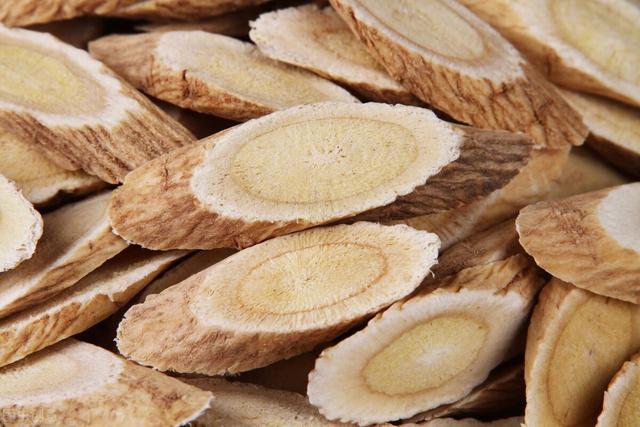
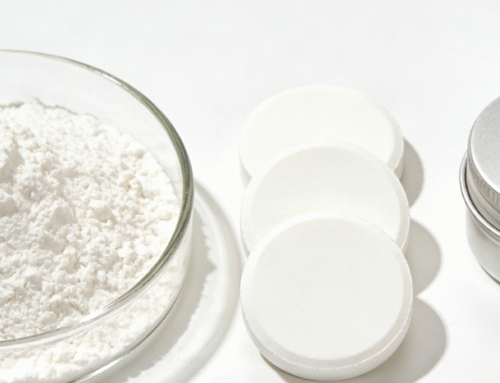
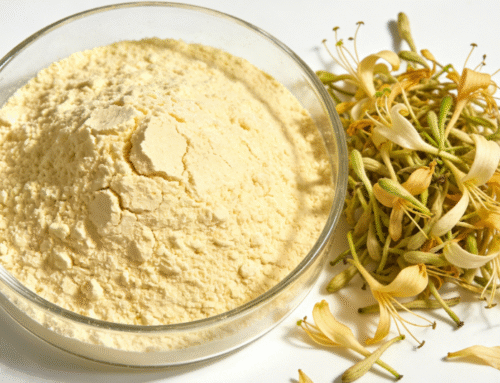
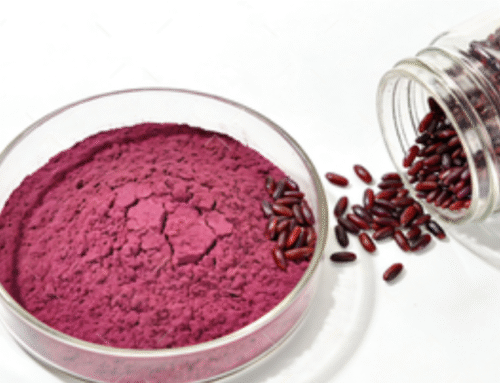
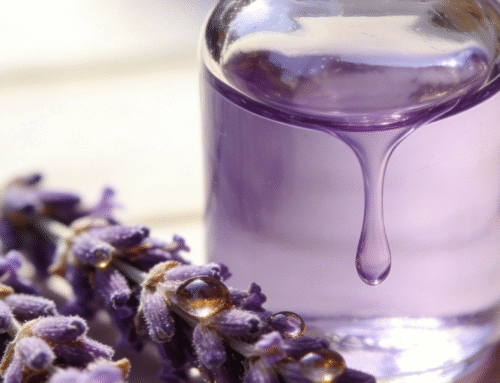
Leave A Comment